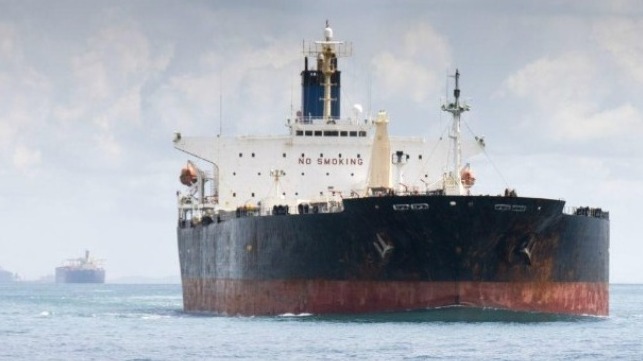Ukraine Lists Five Greek Tanker Companies as Candidates for Sanctions

Ukraine has listed five of Greece’s most prominent tanker companies along with the Liberian Registry on a website it created to highlight what it calls “International Sponsors of War.” The move is largely propaganda linking to old media reports as a means of highlighting the actions of international companies in supporting Russia in the war effort. Companies are cited as “candidates for sanctions.”
Launched a few months after the war began, the site seeks to highlight both commercial entities and individuals that the Ukraine government thinks should be sanctioned for their actions. Currently, they are listing a total of 17 companies ranging from French retailer Leroy Merlin, to Belgian banking software company OpenWay Group, and Italian manufacturing company Danieli Group.
“Prime candidates for sanctions are those companies that provide the public and private sector with goods and services of critical purpose, as well as replenish the country's budget, thereby financing the war,” they write on the site explaining their purpose.
Added to the list are Greek shipping companies headed by well-known industry leaders, including George Economou, George Prokopiou, Andreas Martinos, Nikolas Maritnos, and Diamantis Diamantidis. The companies include vessel manager TMS Tankers, Minerva Marine, Thenamaris Ship Management, Dynacom Tankers Management, and Delta Tankers.
They cite links to a series of reports from outlets such as Lloyd’s List Intelligence showing the involvement of the Greek tanker industry in the movement of Russian oil. Lloyd’s for example estimated that Greek-controlled tankers continue to call at Russian oil export ports in the Baltic and Black Sea moving as much as a third of the Russian crude market. For nearly a year, Ukraine has been building a case against Greek tanker companies according to Lloyd’s. The goal is to use the negative exposure to drive a further reduction in Russia’s key oil trade.
The EU for example however permits some of the oil trade to continue, although there have been many reports of tankers going dark (i.e turning off their AIS and identifying signals) to avoid sanctions. The EU permits the oil trade below the cap price but has limits on vessels from transporting Russian crude oil and petroleum products to third countries. There are also prohibitions on providing technical assistance, brokering, or financing.
The Ukrainian site also lists the Liberian International Shipping and Corporate Registry. They link to reports from last year about the transfer of vessels from Sovcomflot to third-party managers after the first rounds of sanctions on Russian shipping assets.
The effort to highlight the Greek tanker community's actions comes as Ukraine is working aggressively to extend and possibly expand the grain export agreement which is dependent on the same shipping community which they are listing for its efforts in the oil sector. Bulker operators and their vessels are providing a critical source of income for Ukraine through the trade. Since the launch of the program established by the UN with support from Turkey, nearly 24 million tons of foodstuffs have been exported.

that matters most
Get the latest maritime news delivered to your inbox daily.
Emphasizing the importance of the grain deal which is currently set to expire at the end of next week, UN Secretary-General Antonio Guterres traveled to Ukraine yesterday to meet with Ukraine’s President Volodymyr Zelenskyy. At the end of the meeting, Guterres released a statement saying, “I want to underscore the critical importance of rolling over the Black Sea Grain Initiative on 18th March and working to create the conditions to enable the greatest possible use of export infrastructure through the Black Sea.”
Shipments have slowed during the winter months, but in its last update, the coordination center in Istanbul reported that it has 99 applications. At the end of last week, 12 vessels were waiting for inspections before proceeding to Ukraine while an additional 21 vessels were outbound waiting for inspections. Over 770 outbound voyages have been completed since the program began in August 2022.
